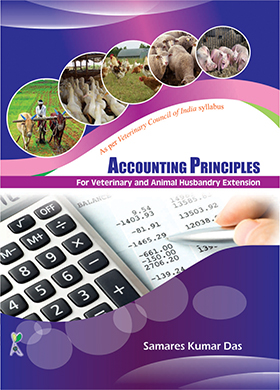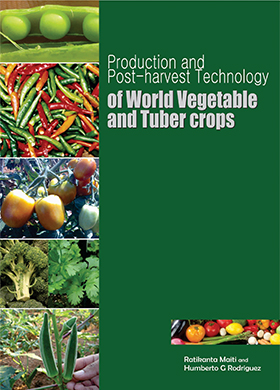Ajzen, I., 1991. The theory of planned behaviour. Organizational behaviour and human decision process 50, 179−211.
Ambad, S.N.A., Damit, D.H.D.A., 2016. Determinants of entrepreneurial intention among undergraduate students in Malaysia. Procedia Economics and Finance37, 108−114.
Arisandi, D., 2016. Intensi Berwirausaha Mahasiswa Pascasarjana Institut Pertanian Bogor Pada Bidang Agribisnis (Studi Kasus Pada Mahasiswa Program Magister Sps-Ipb), Thesis, Bogor Agricultural University, Bogor, ID. Intention in agricultural sector.
Aziz, A., Naem, N., 2013. Factors that influence the interest of youths in agricultural entrepreneurship. International Journal of Business and Social Science 4, 288−302.
Bandura, A., 1997. Social learning theory. Englewood Cliffs, NJ: Prentice Hall.
Bird, B., 1988. Implementing entrepreneurial ideas: The case for intention. Academy of Management Review 13, 442−453.
Devi, M., 2015. A study on the influencing factors for a literate youth to take up agricultural entrepreneurship.International Journal of Management and Commerce Innovations 3, 692−700.
Guerrero, M., Rialp, J., Urbano, D., 2008. The impact of desirability and feasibility on entrepreneurial intentions: a structural equation model. International Entrepreneurship and Management Journal 4, 35−50.
Kolvereid, L., 1996. Prediction of employment status choice intentions. Entrepreneurship Theory and Practice 21, 47−57.
Krueger, N.F., 2007. What Lies Beneath? The Experiential Essence of Entrepreneurial Thinking. Entrepreneurship Theory and Practice 31, 123−138.
Krueger, N.F., Reilly, M.D., Carsrud, A.L., 2000. Competing models of entrepreneurial intentions. Journal of Business Venturing 15, 411−432.
Masoomi, E., Zamani, N., Bazrafkan, K., Reza, M., 2016. An investigation of the factors influencing entrepreneurial intention of senior agricultural students at Shiraz Univerity, Iran. International Journal of Agricultural Management and Development 6, 431−437.
Mohamed, Z., Rezai, G., Shamsudin, M.N., Mahmud, M.M., 2012. Enhancing young graduates’ intention towards entrepreneurship development in Malaysia. Education + Training 54, 605−618.
Mohavedi, R., Latifi, S., Sayyar, L.Z., 2013. The factors affecting agricultural students attitude towards self-employment and entrepreneurship. International Journal of Agriculture and Crop Sciences 5, 1813-1819.
Muhammad, A.D., Aliyu, S., Ahmed, S., 2015. The clute institute entrepreneurial intention among Nigerian university students. American Journal of Business Education 8, 239−247.
Peterman, N.E., Kennedy, J., 2003. Enterprise education: influencing students’ perceptions of entrepreneurship. Entrepreneurship Theory and Practice 28, 129−144.
Pouratashi, M., 2014. Entrepreneurial Intentions of Agricultural Students: Levels and Determinants. The Journal of Agricultural Education and Extension, 1-11.
Pribadi, H., 2005. Defining and constructing the teaching model of entrepreneur education based on entrepreneurial intention model. Jurnal Teknik Industri 7, 76−82.
Ridha, R.K., Burhanuddin., Qahyu, B.P., 2016. Entrepreneurship intention in agricultural sector of young generation in Indonesia. Asia Pacific Journal of Innovation and Entrepreneurship 11, 76−89.
Saheed, A., Kavoos, M., 2016. The present attitude of African youth towards entrepreneurship. International Journal of Small Business and Entrepreneurship Research 4, 21−38.
Shapero, A., 1984. Why entrepreneurship? Working paper, Babson College.
Shiri, N., Davoud, M., Seyed, H., 2012. Entrepreneurial intention of agricultural students: effects of role model, social support, social norms and perceived desirability. Archives of Applied Science Research 4, 892−897.
Shiri, N., Shinnar, R.S., Mirakzadeh, A.A., Zarafshani, K., 2017. Cultural values and entrepreneurial intentions among agriculture students in Iran. International Entrepreneurship Management Journal. DOI 10.1007/s11365-017-0444-9
Tkachev, A., Kolvereid, L., 1999. Self-employment intentions among Russian students. Entrepreneurship and Regional Development 11, 269−280.
Turker, D., Selcuk, S.S., 2009. Which factors affect entrepreneurial intention of university students? Journal of European Industrial Training 33, 142−159.
Urbano, D., Aparicio, S., Audretsch, D., 2018. Twenty-five years of research on institutions, entrepreneurship, and economic growth: what has been learned? Small Business Economics.
Wijerathna, R.M.S., 2015. Factors predicting the intention of academics of faculties of agriculture in the state universities in Sri Lanka to engage in outreach activities. Tropical Agricultural Research 26, 285−293.
Yusoff, A., Ahmad, N.Z., Halim, H.A., 2016. Entrepreneurial orientation and agropreneurial intention among Malaysian agricultural students: The impact of agropreneurship education. Advances in Business-Related Scientific Research Journal 7, 77−92.
Zampetakis, L., Anagnosti, A., Anagnosti, A., 2014. Understanding entrepreneurial intentions of students in agriculture and related sciences. Poster paper prepared for presentation at the EAAE 2014 Congress ‘Agri-Food and Rural Innovations for Healthier Societies’, Ljubljana, August 26−29.
Zhang, Y., Duysters, G., Cloodt, M., 2014. The role of entrepreneurship education as a predictor of university students’ entrepreneurial intention. International Entrepreneurship Management Journal 10, 623−641.



.jpg)
.jpg)






